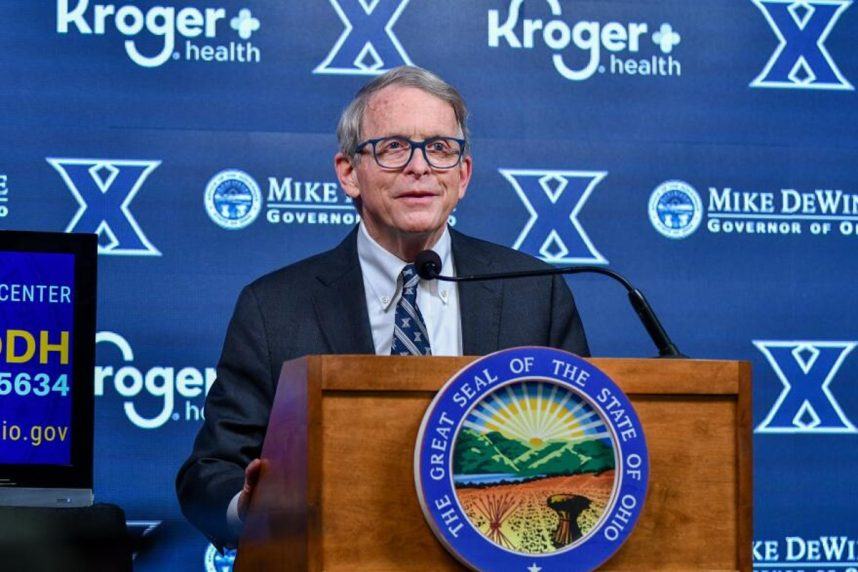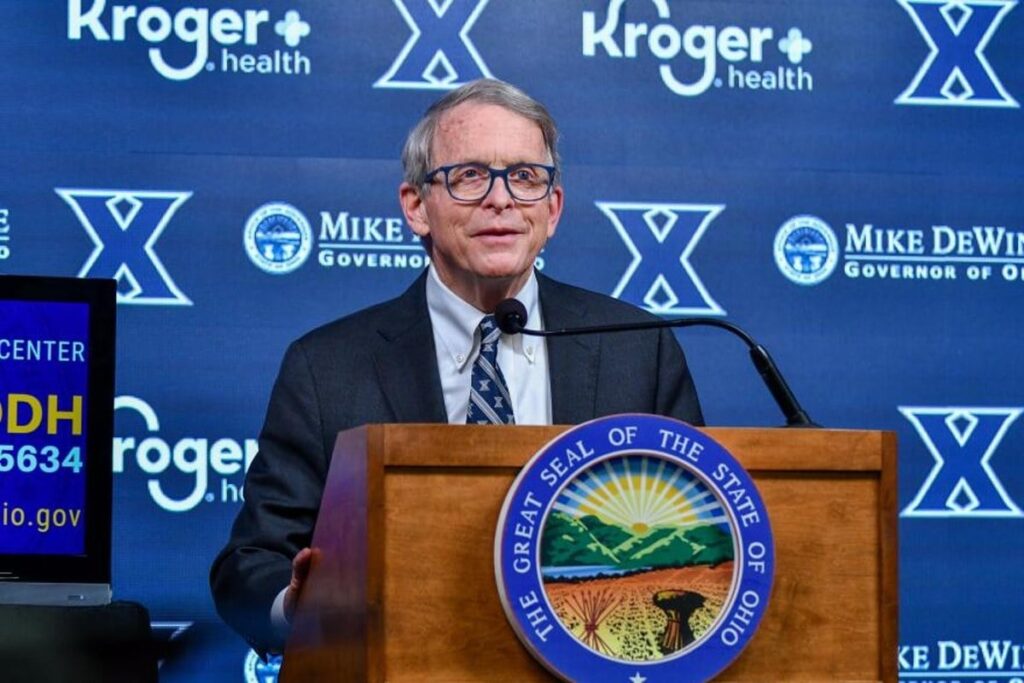Posted on: February 5, 2024, 02:17h.
Last updated on: February 5, 2024, 02:17h.
Ohio Gov. Mike DeWine (R) agrees with NCAA President Charlie Baker that collegiate player props shouldn’t be allowed at regulated sportsbooks.

In late January, the NCAA submitted a request to the Ohio Casino Control Commission asking the state gaming regulator to amend its sports betting rules to prohibit player props involving college athletes. The nonprofit organization that regulates athletics at over 1,000 colleges and universities believes college player props threaten the safety of student-athletes.
On Friday, DeWine issued a statement in agreement.
One year into sports gambling in Ohio, we have seen a marketplace develop where a number of bad actors have engaged in unacceptable behavior by making threats against student-athletes in Ohio and across the country,” DeWine wrote. “By amending rules to focus bets on the team and away from individual athletes, I believe we can improve the marketplace in Ohio and better protect student-athletes from unnecessary and potentially harmful threats.”
Baker in a letter dated Jan. 31 to the Ohio Casino Control Commission, which regulates casino sportsbooks and their third-party online sportsbook platforms, said “sports betting without appropriate controls poses real risks to the well-being of student-athletes and the integrity of collegiate competition.” Those risks, Baker explained, are heightened by individual player props.
Regulator Fielding Comments
The Ohio Casino Control Commission acknowledged receipt of both Baker and DeWine’s letters in support of amending the state’s permissible Event and Wager Catalogue. The regulatory said it would accept comments from its licensed sportsbooks on the subject until Feb. 12.
Legal sports betting in the Buckeye State began on Jan. 1, 2023. Oddsmakers took over $7.65 billion in bets during the year and kept $937 million on a hold rate of approximately 12%. The state’s sports gaming revenue report does not specify how much of the handle and gross income retained by the books was generated by college player props.
DeWine and Baker’s support deals only with college sports — not professional sports. Both men said they’ve been told by university officials about college athletes being “harassed” by bettors via social media.
Baker during his January “State of College Sports” address highlighted the importance of student-athlete safety in the wake of expanded sports gambling. Baker announced the NCAA’s contracting of the Signify Group and the company’s Threat Matrix tool to study, detect, and respond to online abuse and threats made against players, coaches, and officials.
The NCAA’s embrace of legal sports gambling is on the condition that such wagering does not jeopardize the integrity of the sports it sanctions. Baker and NCAA brass believe player props leave the door open to bad actors looking to fix an outcome or threaten, harass, or assault a player who does not perform as they wish.
College Player Prop Legality
Nearly 40 states today have legal sports betting, with nearly all allowing bets on college sports. Many states continue to allow college player props despite the NCAA’s stern opposition.
Along with Ohio, permissible college player prop states include Kansas, Louisiana, Maryland, Michigan, and Wyoming. DC sportsbooks can also facilitate college player props.
College player props are also allowed in Connecticut, Illinois, Iowa, New Jersey, New Hampshire, and Rhode Island, so long as the players included in the prop do not play for colleges located in those states.



